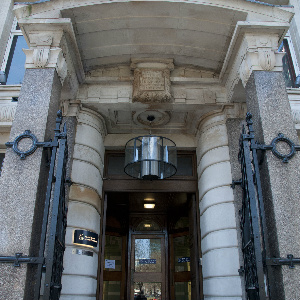Half of GPs still critical of RCGP’s handling of the CSA exam row

Almost half of GPs responding to a Pulse survey are still critical about RCGP’s handling of the CSA exam row, despite the fact a judicial review found it to be lawful earlier this month.
The survey, conducted this month after the judicial review hearing, asked 454 GPs how they would describe the RCGP’s handing of the controversy over the MRCGP exam, with 46% answering ‘poor or very poor’ – a decrease on the 58% who criticised its handling in a similar survey in October 2013.
The new survey also revealed that 63% of respondents said they did not think the MRCGP exam was unfair to international medical graduates (IMGs) while 14% said it was, which was a decrease on the 24% who said it was unfair in October 2013. An even smaller proportion – 12% – still thought it to be unfair to ‘non-white graduates’.
Prompted as to which measures could be taken by the RCGP to improve fairness of the exam, popular ideas among GPs included ‘better feedback on performance’ and ‘better preparation of candidates’.
The most recent survey was conducted after the High Court found in favour of the RCGP, ruling that the exam was not directly discrimantory to IMGs. However, Mr Justice Mitting said that the RCGP must act to address the differences in pass rates between white UK graduates and international medical graduates.
It comes as the British Association of Physicians of Indian Origin (BAPIO), which took the legal action against the college, said it was seeking a meeting with the Prime Minister about the exam.
Related stories
Analysis: Where next for the MRCGP exam?
International graduates should face higher bar to work in the UK, finds GMC-commissioned research
RCGP vows to take action on MRCGP failure rates after High Court ruling
BAPIO chair Dr Ramesh Mehta said: ‘The Government… needs to come in and ask what is going on, why all ethnic minority doctors are having problems… passing the exam, why they get reported to the GMC, why they are removed from the register, why they can’t progress in their career, why they can’t get excellence awards – everything is a problem.’
‘We are in the process of writing to the Prime Minister about it. We need to bring this to the attention of the PM… and hopefully find some way forward. We want the Government to take some positive steps to recognise the contribution of IMGs and ensure there is equality of treatment.’
Dr Mehta also said that a BMJ paper last week, which suggested that the standards of an exam taken by all IMGs before practising medicine in the UK needed to be raised, risked eroding confidence in overseas doctors.
He said: ‘The way the media in general portrayed the study as “foreign doctors are not up to the mark” was very bad publicity for everybody. I think it will reduce the confidence that patients will have in the NHS – much of which is run by ethnic minority doctors.’
A spokesperson for the RCGP said: ‘The recent challenge to the MRCGP was successfully defended by the RCGP in the High Court. We note that more than 50% of respondents felt the College’s handling of the MRCGP was good or very good.’
Survey results
Is the MRCGP exam unfair to international medical graduates?
Yes – 14%
No – 49%
Don’t know – 37%
Total – 454
Is the MRCGP exam unfair to non-white medical graduates?
Yes – 55%
No – 14%
Don’t know – 31%
Total – 449
How would you describe the RCGP’s handing of the controversy over the MRCGP exam this year?
Very good – 9%
Good – 44%
Poor – 38%
Very poor – 9%
Total – 442
What do you think should be changed about the MRCGP exam to make it fairer to non-white candidates? (multiple choice)
Better preparation of candidates – 42%
Videoing clinical skills assessment – 29%
More non-white examiners – 21%
Having a second examiner – 32%
Better feedback about performance – 51%
Nothing should be changed – 16%
Total – 421
About the survey: Pulse launched this survey of readers on 15 April 2014, collating responses using the SurveyMonkey tool. The 25 questions asked covered a wide range of GP topics, to avoid selection bias on any one issue. The survey was advertised to readers via our website and email newsletters, with a prize draw for a Samsung HD TV as an incentive to complete the survey.
As part of the survey, respondents were asked to specify their job title. A small number of non-GPs were screened out to analyse the results for this question. These questions were answered by 454 GPs.
Pulse October survey
Take our July 2025 survey to potentially win £1.000 worth of tokens











